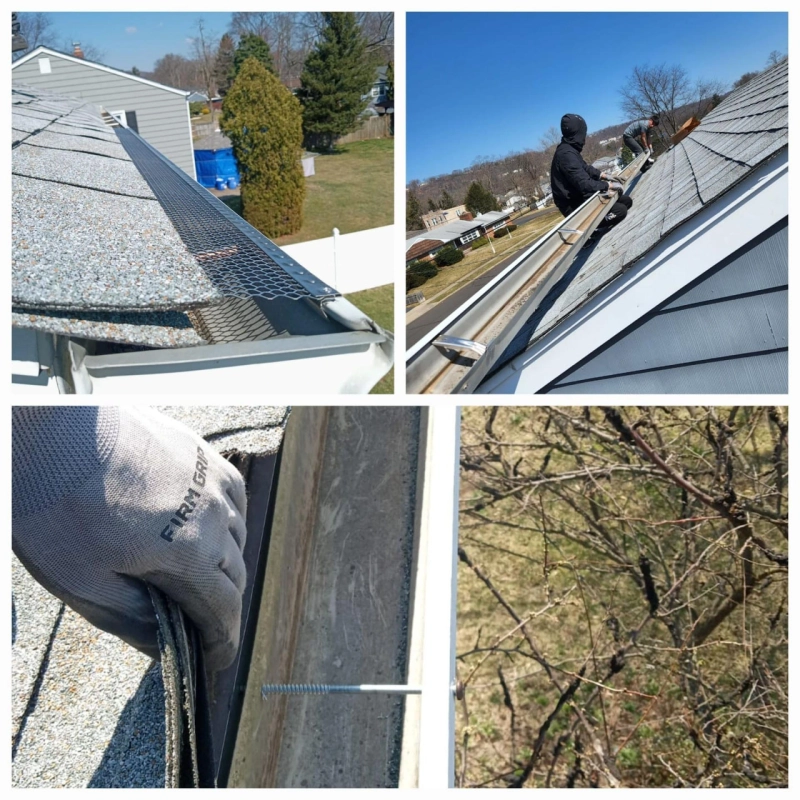Metal roofing has gained widespread acceptance and is now a feasible alternative for virtually all homes, except for those with extremely flat roof slopes. Morris Roofers, Metal roofs do not have to scream "metal." There are now metal Morris Roofing materials in the shingle design that are virtually indistinguishable from regular asphalt shingle roofs. If you're unsure about the advantages of metal roofing, here are the facts to consider.
Metal Roofs Are Not a Fad
Historically, metal roofing was reserved for the most affluent, architect-designed residences. This is no longer the case. Due to increased availability and improved production techniques, metal roofing is now used on ordinary dwellings. According to industry figures published in 2017, metal roofing's market share climbed at a pace of nearly 3% per year for a few years and accounted for approximately 15% of all roofing installations. Simultaneously, asphalt shingle roofing's market share decreased, accounting for around 59% of total roofing installed.
Metal Roofing Can Be Overlaid on Existing Roofs
Metal roofs can be put over existing shingles without ripping them off if local building rules permit. While shingle removal is the preferable method, tear-off is inconvenient and adds to the job's expense.
Trapped water vapor is a possible issue with this sort of installation. If moisture is trapped between the metal roofing and the Morris roofing, mold and rot can develop. However, roofers can build a ventilated metal roof to avoid this issue. Alternatively, placing the new metal roofing above furring strips (1 x 3s or equivalent) elevates the metal and creates an air gap between the layers.
Consult your local building codes before installing a metal roof directly over existing shingles. Certain jurisdictions may necessitate a complete tear-off before installing a new roof.
Metal Roofing is not noisier than asphalt shingles
Although it is a frequent misperception that metal roofs are louder than other types when rain or hail falls on them, the fact is that metal roofing is no noisier than any other form when correctly constructed. In most cases, metal roofs are installed atop a strong foundation. Furthermore, the attic and insulation act as a sound barrier. Residents seldom notice an increase in noise levels inside their homes when a metal roof is installed.
Lightning Is Not Attracted to Metal Roofing
While it is possible to assume that a metal roof attracts lightning, this is not substantiated by scientific evidence or statistical evidence. According to a technical document published by the Metal Construction Association, "metal roofing does not enhance the likelihood of a lightning strike." Not only that, but when struck by lightning, metal roofing is less combustible than conventional roofing materials such as wood shakes or shingles. Metal roofing is also less expensive than conventional roofing materials.
Metal Roofing May Be More Economical
Although the guarantees on most metal roofing systems are equivalent to those on the finest asphalt shingles (about 30 years), metal roofs have been known to last 50 years or more in practice. According to State Farm Insurance, metal roofs have an average lifespan of 40 to 70 years. Since homeowners seldom put more than one metal roof on their house in their lifetime, this is an incredibly rare occurrence.
Comparatively, a homeowner will most certainly replace an asphalt shingle roof twice, if not three or four times during the course of 50 years. Even though a metal roof is significantly more expensive than asphalt roofing (about twice as much), it can save money over time.
Insect and fire-resistant metal roofing are available for purchase
One of the key reasons for the increase in popularity of metal roofing is the fact that it is nearly fireproof. Metal roofing has become the favored roofing material in many parts of the country as wildfire dangers have increased.
Termites, for example, cannot devour metal roofs
Metal roofing is rot and mildew resistant.
Snow falls off more quickly than with traditional roofing because of the rapid conductivity of heat from the sun.
Metal Roofing Is a More Energy-Efficient Material
According to industry research, metal roofs reflect solar radiation heat, which can result in a 10% to 25% reduction in cooling expenses.
In areas where cooling expenses exceed heating costs, covering a metal roof with a reflective or granular coating can enhance the roof's reflecting capability and result in increased energy savings.
Metal Roofing Can Be Used on Sloped Roofs
While it is sometimes considered that metal roofing is only suited for steeply pitched roofs, standing-seam metal roofing may be used on gently sloped roofs. This form of roofing is put in huge sheets with elevated and securely sealed seams to withstand water. While some slope is essential to enable proper water run-off, metal roofing is suitable for the majority of dwellings.
0


